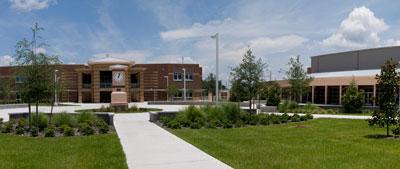Advice for High School Juniors
College Application Process
It is not too late for high school juniors (class of 2014) to have a successful junior year and maximize their college application process for the coming year.
Here are 6 valuable tips to make the most of your junior year:
- Continue to work hard and get the best grades possible. Extra credit projects can boost a grade, if available. If you are struggling in a class, try to see your teacher during office hours for extra help or seek out a peer tutor. Junior year grades in your academic classes are scrutinized closely by college admission staff. Set your priorities, study hard, and get help if you need it.
- Stay committed to those core extracurricular or volunteer activities that you have always been involved in. If time permits, try to assume a leadership position in at least one of them. Remember, colleges are more interested in seeing a long term commitment to a few extracurricular or volunteer activities than dabbling a little bit in a plethora of activities. Colleges also love to see a student step forward and assume a leadership position. It shows dedication and a desire to assume responsibility.
- Your junior year teachers will most likely be writing your teacher recommendation letters for college. Remember to leave a positive impression on your teachers. Allow your teachers an opportunity to get to know you, so that they can write a more meaningful letter of recommendation.
- Diligently prepare for and register online to take the standardized tests (SAT/ACT). Juniors can take it in the spring and retake it in the fall, if desired. If you feel confident in any of the individual subjects, consider taking the SAT Subject Tests in May or June. Even though many schools do not require them, an impressive score can enhance your application and give you a competitive edge.
- Junior year is the perfect time to start thinking about what parameters you are looking for in a college. Research colleges through guide books, college fairs, online research, your college dean at school, and speaking with other students. Start to construct a well balanced list of target schools (including safety schools, reach schools, 50/50 schools, and likely schools). Try to be realistic! Consider touring colleges during spring break or summer vacation. You can get a better “feel” for a college or university by touring when classes are in session. Visiting a campus is the best way to get to know a school and determine if it feels like a good match for you. Make sure to sign up online or call the campus ahead of time to reserve a spot on the tour. Remember to sign in with Admissions when you attend the tour. Many schools keep track of demonstrated interest. Usually, an information session will follow the tour and there is the opportunity to ask questions. Consider sending your tour guide a thank you note. Most tour guides are student volunteers.
- Plan ahead to have a productive summer. Some possible ways to spend the summer are study abroad programs, volunteer programs, taking classes, or working at a paying job. It’s also a perfect time to start your college applications and essays.
Following these suggestions should give you a competitive edge for college and help reduce stress in the college process. Good luck to you and I hope that you have a successful year!
Share this:




